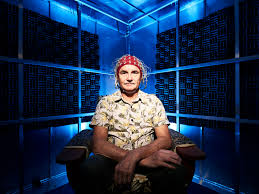
Human Magnetoreception: Tests of magnetite-based transduction
Description
Although many migrating and homing organisms are sensitive to Earth’s magnetic field as illustrated in the attached figure, most humans are not consciously aware of the geomagnetic stimuli that we encounter in everyday life. Either we have lost the magnetosensory system shared by many of our not-too-distant animal ancestors, or a system still exists with detectable neural activity but lacks potent output to elicit perceptual awareness in us. With initial support from the Human Frontiers Science Program, we now have strong support for the existence of a subconscious human magnetic sensory system [1]. We have found some brief, ecologically-relevant rotations of Earth-strength magnetic fields that produce strong, specific, and repeatable decreases in EEG alpha band (8-13 Hz) power in the few seconds following magnetic stimulation. Similar brainwave changes are known to arise from visual, auditory, and tactile stimuli and are termed alpha event-related desynchronization (alpha-ERD). To date, our data show that: (1) the human geomagnetic compass response is polar in nature (can distinguish North from South), (2) can operate in total darkness, and (3) is not based on any form of electrical induction (and hence is not an electrical artifact). These results rule out both a quantum compass and an induction sensor as the transduction mechanisms, leaving a system based on biologically-precipitated nanocrystals of magnetite (Fe3O4) as the most likely. Humans are part of Earth’s Magnetic Biosphere.

